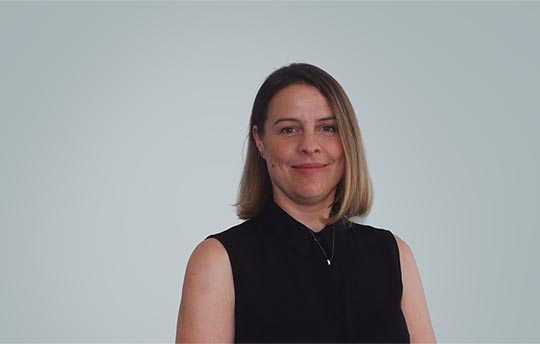Master of Research (MRes)
The Master of Research (MRes) is for those pursuing a career in academic or professional research. It is also suitable for individuals who would like to develop research skills within their professional field as part of their continuing professional development (CPD).
An MRes can give you a competitive edge in a research and evaluation-orientated job market and is a valuable stepping-stone towards a PhD. In this course, you will gain advanced research skills, develop and carry out our own research project and earn an internationally recognised research qualification. You can study for the MRes full-time or part-time.
This course is delivered online with a combination of asynchronous activities, materials tasks and synchronous teaching and research supervision.
International students are very welcome on this and, as the course is delivered online, do not need a visa to apply.
Why QMU?
- Flexible and progressive study mode: This MRes course is designed to give a friendly and supportive start via live teaching and activities.
- Supportive staff who are experts in their field: You will receive support throughout your studies from our academic team and will be mentored by a supervisor who has significant expertise in your area of interest
- Graduate success: Our MRes students have successfully applied their enhanced research skills in a variety of fields, including academia, business, and government roles. You could also use the MRes as a step towards your PhD.
- Tailor your studies: You can choose the topic you wish to focus on during your MRes and we will work with you to find a suitable supervisor.
Watch Programme Leader, Rosie Arthur, talk about the Master of Research
First-class researchers are much sought after in academia and by commercial and third sector organisations that want to gain an edge in their marketplace. On this course, you will develop advanced research skills that are transferrable to almost any field. You will also learn how to apply your research techniques to real-world problems to make you more valuable to prospective employers.
During the MRes programme you will be supported to:
- Complete foundational research training across a range of disciplines and backgrounds.
- Produce an in-depth and critical understanding of contemporary research practice.
- Develop expert research knowledge within a specific area/ field of research literature.
- Engage in research with curiosity, independence, and reflection with regards to your own development and the development of research projects.
- Derive and justify a research aim, research question (and where relevant, one or more research hypotheses) and plan a general research approach based on a review of appropriate literature/sources.
- Evaluate and synthesise complex problems/concepts/theories in order to formulate arguments and apply knowledge or practice in novel ways.
- Plan, explain and undertake advanced methodological skills and knowledge relevant to a specific field and research study; and defend the research processes to be undertaken.
- Design a research communication strategy and undertake activity to communicate ideas to a number of audiences.
- Facilitate the critical and empirical exploration an area of research over an extended period.
- Develop as a graduate who has acquired the skills and competencies required to carry out all tasks and elements required of a research process.
- Have the ability to engage in research independently; and be able to continue to doctoral studies or develop research within a professional capacity.
- Produce research findings which further knowledge and/or understanding.
You will complete seven modules on the MRes. The three taught modules below are designed to develop your research skills and your ability to review the literature in your chosen field:
- Literature Enquiry and Synthesis.
- Research Methods: Problems and Solutions
- Foundations of Research Practice
On completion of the three above, you will then study four further modules (below) where you will be supported to identify your research development needs, develop a critical understanding of the modern research environment, and establish your philosophy as a researcher.
You will then be supported to design, propose and apply advanced research methods in your area of research interest via the modules:
- Research Project Proposal
- Advanced Research Methods for your Research Project
- Delivering your Research Project
- Disseminating your Research Project
Finally, you will be guided to develop a research thesis (or other relevant output/piece) and engage in research dissemination activities to specific audiences; a culmination and celebration of the research undertaken during the MRes.
To choose a topic to focus on during your MRes we also recommend you contact the programme leaders (via MResPL@qmu.ac.uk) to review the list of suggested research projects currently available, which have already been assigned to supervisors and fully align with QMU research expertise and interests.
You can also consider what your interests are and browse our divisional webpages to identify staff members in the relevant area who you may wish to approach to discuss supervision. For assistance in deciding your research topic, please get in touch with the Programme Leaders (Rachael Davis and Rosie Arthur) via MResPL@qmu.ac.uk.
Depending on your research topic, our team will be able to facilitate engagement with industry/ stakeholder groups/professional bodies who might have an interest in the project.
Structure and exit awards
You can opt to study for the full Masters of Research (180 credits), Postgraduate Diploma (120 credits) Postgraduate Certificate (60 credits). You can also register as an associate student to complete a single module for CPD. On completion of a single module, you may wish to complete further modules and progress your studies to a named award. Contact Programme Leaders Rosie Arthur or Rachael Davis for more information on single module study.
Teaching, learning and assessment
Taught modules are delivered via a blend of interactive online learning sessions, live online tutorials and self-paced activities. For research project modules, there will be some taught sessions and you will receive support from the module co-ordinator and your research supervisor to facilitate your self-development and independent learning as a researcher.
The course has a variety of assessments including practical research tasks, written assignments, verbal presentations, self-development portfolios, culminating in a written thesis and dissemination activities featuring the results of your research project.
While delivered online, students are welcome on campus and could choose to undertake a research project which requires them to be present on campus at certain times - this activity will be agreed with the assigned research supervisor.
Work-based learning
While there are no formal placements organised as part of the MRes, you can choose to carry your research out in a range of environments including business, industry, workplaces, services, community organisations and charities.
Teaching hours and attendance
As this course is delivered online, there will be a combination of flexible online learning tasks and materials that you will engage in, at time and pace which is convenient to you; live online workshop sessions (a maximum of once a week), and research supervision sessions which you will organise with staff at mutually convenient times. There will also be optional University research activities you will be welcome to attend online to broaden your knowledge and expertise.
Class sizes
We expect around 10-20 students to enrol onto the course each year
Teaching staff
All the staff who teach on this programme are experienced researchers and clear communicators who will be able to assist and inspire you as your progress on your research journey.
You will study the following modules:
- Research Methods: Problems and Solutions (20 credits): The aim of the module is to provide the student with an understanding of research principles, a range of quantitative and qualitative research methodologies and appropriate analysis for these. This will enable the student to develop the foundation research skills and knowledge necessary to undertake an independent research project.
- Literature Enquiry and Synthesis (20 credits): The aim of this module is to build the skills for; systematically searching for research resources; critically reviewing research literature and synthesising the findings of such a review. The module involves the critical analysis of; research designs; literature review and evaluation tools; and the use and application of technology and software to review research literature.
- Foundations of Research Practice (20 credits): In this module, you will be supported to reflect on your research development needs, develop a critical understanding of the modern research environment, establish your philosophy as a researcher and consider ethical issues surrounding your research practice.
- Project Proposal: (20 credits): Based on these foundations, via working with your research supervisor you will then be supported to design and propose a research project in your area of interest.
- Advanced Research Methods (20 credits): In this module, you will receive mentoring and coaching to support the development of your expertise relating to the research methods within your research project. You will be supported to ask critical questions and seek out information and guidance from multiple sources. The aim is to gain the advanced theoretical knowledge and practical skills to undertake and justify your proposed research paradigm, methods and analysis procedures.
- Delivering your research project (60 credits): In this module students are supervised to independently undertake a piece of empirical research. The setting for the research study may include real world settings, e.g. conducting a study for an industry client, for a not-for-profit sector organisation or similar, or, where appropriate, practice-based, laboratory-based or other research-based environments. During the module the student will conduct in-depth analysis, reporting and synthesis of data collected, information sources or practice, and will then be guided to develop a written thesis (or other relevant output/piece).
- Disseminating your Research Project (20 credits): This module is focussed on the dissemination of the findings of the MRes Project to target audiences. Students will learn about designing, implementing and evaluating engaging and relevant ways to communicate research. Students will then build an effective dissemination strategy for their project and delivering a specific resource of dissemination which is relevant to their field and project.
The MRes may be the first stage in your academic career. The skills that you will gain are a great foundation to then pursue doctoral studies for a PhD award or a career in undertaking research activities in other organisations, relevant to service users, industry, or society.
This award may also give you an edge in the competitive job market for professional researchers. Companies, charities and governments are always looking for researchers who can produce work that solves problems and gets measurable results.
Entry requirements
- A first class or upper second class honours degree in a relevant subject that includes a preliminary training in research methods, or equivalent.
- Extensive relevant experience in the subject you wish to research may be considered in lieu of a first class or upper second class honours degree.
- International students: You will be required to provide evidence of English language competence at no less than IELTS 6.5 and no individual component score below 6.0. Please note that we cannot sponsor students on a Student visa for this course as it takes place online
Application Steps
- Contact MRes Programme Leaders (Dr Rosie Arthur and Dr Rachael Davis) via MResPL@qmu.ac.uk) for an informal discussion about your interests and what to expect on the course.
- Consider which research topic(s) are of interest to you:
- Look at the list of suggested research projects currently available at QMU, which have already been assigned to supervisors (available from the programme leaders).
- Look at the QMU website for staff interests and projects which align with your interests
- MRes programme leaders will support you to refine your interests and identify a suitable research supervisor (Students will not be accepted on to MRes without a suitable supervisor and research topic).
- After discussion with a QMU research supervisor, applicants are asked to submit a research proposal that includes the following (max 1,000 words)):
- Proposed supervisor and outline of contact to date (if any)
- Area of Research
- Context and why your research is needed (including short literature review)
- Research Aim/Research Question
- Ideas for potential research methods which could be used
Applying for this course
For more information on applying, or to apply for this course, please follow the links in the 'Start your application' box at the top right of this page.
Application deadline
August 2025 to start in September 2025
Contact the Programme Leaders (Rosie Arthur and Rachel Davis) or contact Admissions
- The delivery of this course is subject to the terms and conditions set out in our 2025/26 Entry - Terms and Conditions (Postgraduate).
- The information on this page is correct at the time of posting (October 2024) but is subject to change. In the event that modules change, QMU will seek to use reasonable endeavours to ensure that there is no detrimental impact on students. Please keep an eye on this page for updates.
Course Overview
A Student Story (see bottom of page for more)
“The MRes allowed me to utilise the research skills I’d gained during my undergraduate degree and build on them to become a more well-rounded academic researcher.”
Read my storyJoin us at one of our Postgraduate Open Events
Find out about online and in-person opportunities to meet with us to find out more about our postgraduate courses and study at QMU.
Postgraduate Open Events - More Info and BookingsCourses You Might Also Like
- Master of Research (Business Administration)
- Master of Research (Clinical Science)
- Master of Research (Cultural Leadership)
- Master of Research (Cultural Practice)
- Master of Research (Education)
- Master of Research (Global Health and Development)
- Master of Research (Person-Centred Practice)
- Master of Research (Psychology)
- Master of Research (Public Administration)
- Master of Research (Public Sociology)
- Master of Research (Rehabilitation Sciences)
- Master of Research (Sociology)
- Master of Research (Speech, Language and Hearing)
- PhD










